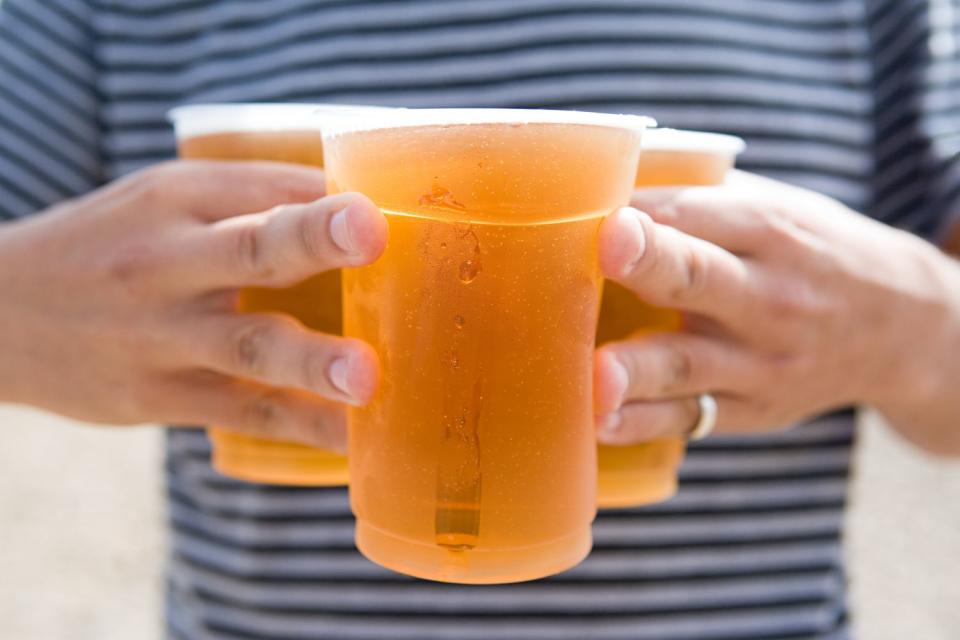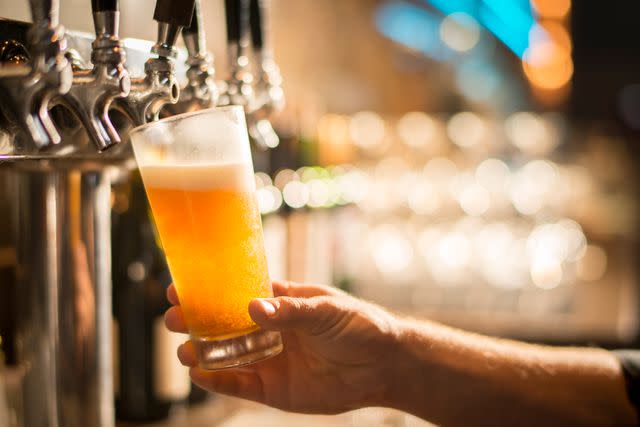Belgian Man Cleared of Drunk Driving Charge Because His Body Makes Its Own Alcohol
A man with auto-brewery syndrome — an actual medical condition in which the digestive system produces alcohol — was found not guilty of drunk driving in a court in Bruges

Getty
Stock photo of a man holding a trio of beers.A Belgian man was cleared of drunk driving in a Bruges court — all because he has a rare disorder where his body makes its own alcohol.
His lawyer, Anse Ghesquiere, said it was an “unfortunate coincidence” that her client worked at a brewery, but said he’d been diagnosed with the rare disorder auto-brewery syndrome (ABS) by three separate doctors, Reuters reports.
Those with the disorder produce ethanol in their digestive systems, the National Library of Medicine explains, which adds it’s a “rare condition” and “likely underdiagnosed.”
“Because of the production of significant alcohol levels, people can test over the legal driving limit without consuming any alcohol,” the National Library of Medicine notes — which is allegedly what happened to the Belgian man.

Getty
Stock photo of a row of beer taps.However, he didn’t exhibit symptoms of intoxication — and as the NLM notes, “the randomness of intoxication episodes can result in difficulties for the patient, including injuries from falls, legal difficulties following driving citations, and strain on social relationships.”
Symptoms align with common indications of being intoxicated: “The patient may experience side effects of vomiting, belching, chronic fatigue syndrome, dizziness, loss of coordination, disorientation, veisalgia, and irritable bowel symptoms.”
Related: Rare Disorder Makes People Think They’re Seeing ‘Demonic’ Faces: 'Like a Creature in a Horror Movie'
It’s caused by “fermenting microbes” that over-colonize, and is caused by a diet “high in carbohydrates and refined foods and the overuse of antibiotic and non-antibiotic drugs in food and medicine.”
Drug and diet therapy can help — as can limiting carbohydrates in the diet for those with the disorder.
The condition can be a challenge to diagnose, the NLM notes, and adds that due to sporadic episodes of intoxication, “family members should supplement the intake history since patients may not remember their episodes of intoxication or what they ate prior to an episode.”
In chronic cases, “fecal microbiota transplants” may be required, which, as John Hopkins Medicine explains, “works by taking healthy bacteria (microbiota) from the feces of a carefully screened donor and transferring them to the colon of the recipient.”
For more People news, make sure to sign up for our newsletter!
Read the original article on People.


